*/
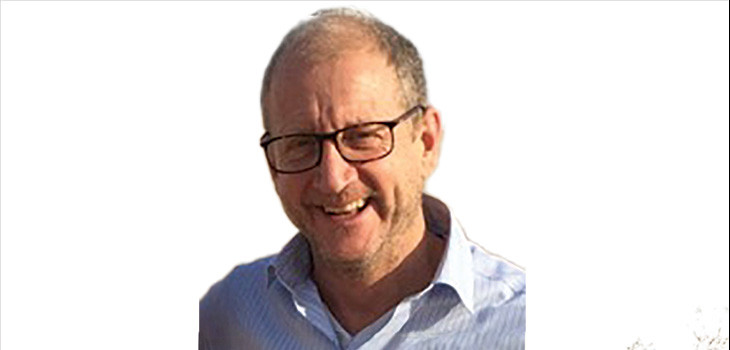
I remember as a student being given an essay title by an over-sincere teacher. The title was: ‘Why?’ Watching my fellow pupils scribbling away, I eventually wrote ‘Why not?’ and left it at that. My essay was marked Alpha ++/ Delta --. I could not see the point of the title.
Things did not improve when I arrived at Sheffield University. Heavily under-inspired, I spent much of my time playing the piano at the Red House pub. When asked to write an essay: ‘What is the role of the executive in our society?’, I wrote an essay about the role of the administrative, the Civil Service. Come to think of it, it might be said that I was not far wrong in confusing the two. I was told by my constitutional law lecturer that I was the only person to whom he had ever given 0/20. He asked me whether I had thought of switching courses.
I was brought up in the Midlands. One of the strongest influences of my early life has been the death, in tragic and complex circumstances, of my mother and my own involvement in the immediate aftermath of her death. I was then brought up under the strong influence of four people – my father, my stepmother and my paternal grandparents. My paternal grandfather manned a machine-gun in the First World War; he was shot three times and very nearly killed. His experiences left him driven by the need to identify principle – what is right and what is wrong. And to stick to principle, even if it might cost him his life. My father served in the Second World War and had the same dogmatic adherence to principle; trained by the Royal Marines and aged 19, by the end of the war, he was a captain in the army before going to Oxford and then into accountancy. And my stepmother? Born, as she put it, in the back streets of Huyton, she was the most loyal, principled and devoted person that I have ever met. You identify what is right and then you stick to it. Like me, they would each despair if they could see some of the things that have gone on in recent years.
That brings me on to books and music. The first book I want to mention is Narcissus and Goldmund. Written by Herman Hesse, it tells the tale of an aesthetic monk (Narcissus) and his relationship with Goldmund, who explores life to its fullest. I understand only too well the combination of the polar opposites that the story tells – the quest for quiet understanding and the desire to see, and experience, life.
And poetry? As a student, I learnt several of the poems of TS Elliot by heart, including The Waste Land which I still carry around with me in my head and recite sometimes when driving (until the windscreen tells me to shut up). I think that, if you read it, really own it, it reveals itself as a great love poem for someone who has died, as well everything else. Try reading it from that perspective. However, the poem also speaks to me about purpose and the finding of peace, ending as it does with the Sanskrit “Datta. Dayadhvam. Damyata. Shantih, shantih, shantih.’
And music? I love La Traviata, the third scene especially. It combines the inner remorse of the story with the power of brilliant musicality. If there is anything that is God given it is art. The story shows the decline of Violetta’s health from being a glittering socialite to the point where she dies, and Alfredo cannot accept her death.
And painting? How about An old woman cooking eggs by Velazquez. Why? Because it is simple, unpretentious and masterful. Like the best of advocacy.
So, it is with that that I came into the law. If asked ‘why?’ I suspect the answer is ‘why not?’ And, hopefully, the quest for principle, purpose and structure. I have been extremely fortunate and supported in my career. Thanks.
Which brings me on to the novel that I wrote. It is written in the first person singular and involves a barrister crashing out of the Bar, moving to Sri Lanka and living in a relationship with Josh. Josh dies and the whole book is dedicated to him. It is not factually autobiographical. I happen to be married with six children. It took me 10 years and 20 rewrites to complete. It includes ‘the true purpose of life is compassion, for that is both universal and it is also where the peace of God lies, in life and in death.’ There is no such thing as them. Only us. That is what I believe. The rest is God’s business.
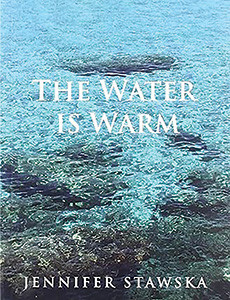
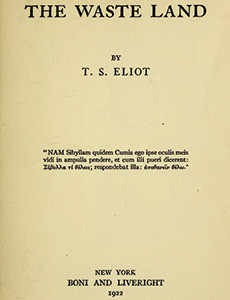
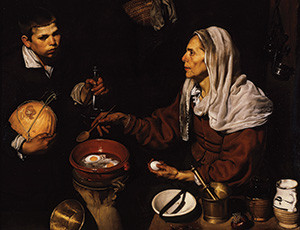
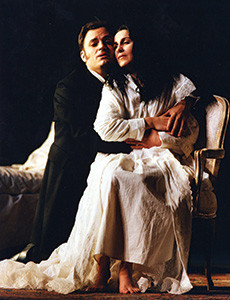
La Traviata – ‘Inner remorse combined with brilliant musicality.’

I remember as a student being given an essay title by an over-sincere teacher. The title was: ‘Why?’ Watching my fellow pupils scribbling away, I eventually wrote ‘Why not?’ and left it at that. My essay was marked Alpha ++/ Delta --. I could not see the point of the title.
Things did not improve when I arrived at Sheffield University. Heavily under-inspired, I spent much of my time playing the piano at the Red House pub. When asked to write an essay: ‘What is the role of the executive in our society?’, I wrote an essay about the role of the administrative, the Civil Service. Come to think of it, it might be said that I was not far wrong in confusing the two. I was told by my constitutional law lecturer that I was the only person to whom he had ever given 0/20. He asked me whether I had thought of switching courses.
I was brought up in the Midlands. One of the strongest influences of my early life has been the death, in tragic and complex circumstances, of my mother and my own involvement in the immediate aftermath of her death. I was then brought up under the strong influence of four people – my father, my stepmother and my paternal grandparents. My paternal grandfather manned a machine-gun in the First World War; he was shot three times and very nearly killed. His experiences left him driven by the need to identify principle – what is right and what is wrong. And to stick to principle, even if it might cost him his life. My father served in the Second World War and had the same dogmatic adherence to principle; trained by the Royal Marines and aged 19, by the end of the war, he was a captain in the army before going to Oxford and then into accountancy. And my stepmother? Born, as she put it, in the back streets of Huyton, she was the most loyal, principled and devoted person that I have ever met. You identify what is right and then you stick to it. Like me, they would each despair if they could see some of the things that have gone on in recent years.
That brings me on to books and music. The first book I want to mention is Narcissus and Goldmund. Written by Herman Hesse, it tells the tale of an aesthetic monk (Narcissus) and his relationship with Goldmund, who explores life to its fullest. I understand only too well the combination of the polar opposites that the story tells – the quest for quiet understanding and the desire to see, and experience, life.
And poetry? As a student, I learnt several of the poems of TS Elliot by heart, including The Waste Land which I still carry around with me in my head and recite sometimes when driving (until the windscreen tells me to shut up). I think that, if you read it, really own it, it reveals itself as a great love poem for someone who has died, as well everything else. Try reading it from that perspective. However, the poem also speaks to me about purpose and the finding of peace, ending as it does with the Sanskrit “Datta. Dayadhvam. Damyata. Shantih, shantih, shantih.’
And music? I love La Traviata, the third scene especially. It combines the inner remorse of the story with the power of brilliant musicality. If there is anything that is God given it is art. The story shows the decline of Violetta’s health from being a glittering socialite to the point where she dies, and Alfredo cannot accept her death.
And painting? How about An old woman cooking eggs by Velazquez. Why? Because it is simple, unpretentious and masterful. Like the best of advocacy.
So, it is with that that I came into the law. If asked ‘why?’ I suspect the answer is ‘why not?’ And, hopefully, the quest for principle, purpose and structure. I have been extremely fortunate and supported in my career. Thanks.
Which brings me on to the novel that I wrote. It is written in the first person singular and involves a barrister crashing out of the Bar, moving to Sri Lanka and living in a relationship with Josh. Josh dies and the whole book is dedicated to him. It is not factually autobiographical. I happen to be married with six children. It took me 10 years and 20 rewrites to complete. It includes ‘the true purpose of life is compassion, for that is both universal and it is also where the peace of God lies, in life and in death.’ There is no such thing as them. Only us. That is what I believe. The rest is God’s business.




La Traviata – ‘Inner remorse combined with brilliant musicality.’


Now is the time to tackle inappropriate behaviour at the Bar as well as extend our reach and collaboration with organisations and individuals at home and abroad
A comparison – Dan Monaghan, Head of DWF Chambers, invites two viewpoints
And if not, why not? asks Louise Crush of Westgate Wealth Management
Marie Law, Head of Toxicology at AlphaBiolabs, discusses the many benefits of oral fluid drug testing for child welfare and protection matters
To mark International Women’s Day, Louise Crush of Westgate Wealth Management looks at how financial planning can help bridge the gap
Casey Randall of AlphaBiolabs answers some of the most common questions regarding relationship DNA testing for court
Maria Scotland and Niamh Wilkie report from the Bar Council’s 2024 visit to the United Arab Emirates exploring practice development opportunities for the England and Wales family Bar
Marking Neurodiversity Week 2025, an anonymous barrister shares the revelations and emotions from a mid-career diagnosis with a view to encouraging others to find out more
David Wurtzel analyses the outcome of the 2024 silk competition and how it compares with previous years, revealing some striking trends and home truths for the profession
Save for some high-flyers and those who can become commercial arbitrators, it is generally a question of all or nothing but that does not mean moving from hero to zero, says Andrew Hillier